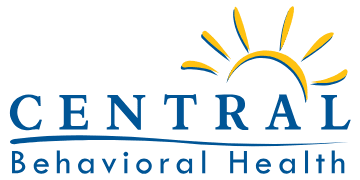Therapy and Medication Management Services
Our Therapy and Medication Management Services offer people of all ages individual, family, or group therapy as well as medication management, psychosocial assessments, and psychiatric evaluations. Both in-person and virtual appointments are available.
Evidence-based treatment
Individualized treatment plans are developed with the client based on their current needs and goals. Some common evidence-based practices our therapists use include:
Cognitive Behavioral Therapy (CBT)
Helps people who are experiencing depression, anxiety, marital problems, eating disorders or other challenges change their thinking and behavioral patterns using various strategies
Dialectical Behavior Therapy (DBT)
Helps people understand and accept strong emotions, learn practical skills for managing difficult feelings, and discover how to make positive changes in their lives
Motivational interviewing
Helps people find the motivation they need to change behaviors in addressing substance use disorders, weight loss, smoking, and other concerns
Screening, Brief Intervention and Referral to Treatment (SBIRT)
A comprehensive, integrated, public health approach to the delivery of early intervention and treatment for individuals at risk for adverse consequences of alcohol and other drug use and for those with problem substance use challenges.
Typical Issues
Some of the typical issues that clients see our licensed clinicians for include:
-
Anxiety Disorders
• Generalized Anxiety Disorder (GAD)
• Social Anxiety Disorder
• Separation Anxiety Disorder
• Panic Disorder
• Obsessive-Compulsive Disorder (OCD)
• Specific Phobias -
Mood Disorders
• Depression
• Bipolar Disorder -
Attention-Deficit/Hyperactivity Disorder (ADHD)
- Autism Spectrum Disorder (ASD)
- Behavioral Issues
- Trauma and Stressor-Related Disorders
- Eating Disorders
- Learning and Developmental Disorders
- Substance Use Disorders
- Sleep Disorders
- Self-Harm and Suicidal Behaviors
- Family and Relationship Issues
• Divorce or separation of parents
• Sibling rivalry
• Parenting issues
• Grief and loss - Social Skills / Self -esteem issues
• Difficulties with peer relationships
• Social anxiety and isolation - Anger Management Issues
- Adjustment to Major Life Changes
Outpatient therapy may involve individual therapy, group therapy, family therapy, or a combination of these approaches, depending on the specific needs of the child or adolescent.
Outpatient therapy eligibility
Outpatient therapy is offered to Montgomery County residents only at both our Abington and Norristown locations. Our intake department can confirm the current availability of therapists credentialed with your insurance provider.
To schedule an intake appointment, call 610-279-9270.
For more information about our Abington-area outpatient therapy services, call 267-818-2220.
Ready for Therapy and Medication Management?
Our flexible approach includes options for in-person or virtual appointments, ensuring accessibility and personalized care for every client. See below to schedule an appointment for the future or view information for same-day access
Same-day access for new client intake
We offer new clients of all ages immediate support through our same-day access commitment. This gives them the security of knowing they can be seen in person or virtually on the same day they seek help without having to deal with scheduling delays or waitlists.
To schedule an appointment, please call 610-279-9270 and let us know you’re seeking a same-day intake appointment for your or your child. Both in-person and virtual intakes are available.
For the person being seen, we ask for the following documents and information:
- Photo ID card
- Social Security number
- All insurance cards
- Current medications
- Relevant legal documents such as custody paperwork, probation orders, or power of attorney authorization
- Proof of household income for anyone being seen who is uninsured
What to expect
All behavioral health journeys at Central begin with a comprehensive assessment, which takes place either in person or virtually. The person being seen is encouraged to have an open, honest discussion with one of our clinicians to make sure they’re directed to the right care. Once the clinician confirms that outpatient therapy is the best option for that individual, a treatment plan tailored to their specific needs and goals is developed.
